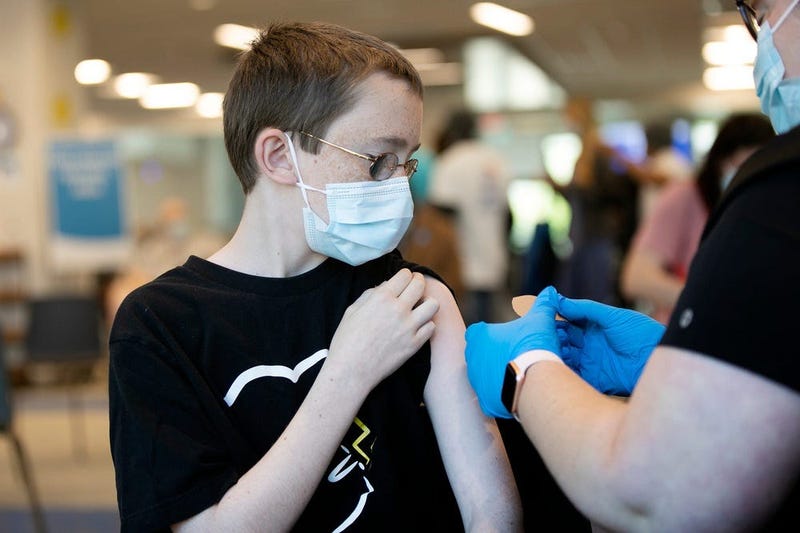
The Food and Drug Administration is expanding COVID-19 boosters for children as young as 12 and also expanding the primary series of shots for some younger, at-risk kids.
Based on real-world data from Israel, where more than 6,300 kids ages 12 to 15 have received a booster at least five months after their primary series of shots, the FDA says there are no new safety concerns, and the benefit of a booster for the 12-to-15 age group outweighs the risks.
The FDA is also shortening the time before the booster for anyone 12 and older to five months. Again, pointing to data from Israel, the FDA said more than 4 million people 16 and older have received a booster five months out, and there are no new safety concerns.
In addition, the FDA is allowing a third primary series dose — not a booster, but part of the initial shots for certain immunocompromised children, ages 5 to 11. The FDA mentions organ transplant recipients specifically, but also any children who may not have the adequate immune response to the two-dose regimen.
However, in Monday’s announcement, the FDA emphasizes children 5 to 11 who are fully vaccinated and are not immunocompromised do not need a third dose at this time. Health authorities will continue to keep an eye on it.

The FDA’s decision must first be approved by the Centers for Disease Control and Prevention. The CDC’s director is expected to rule later this week.
LISTEN on the Audacy App
Sign up and follow Audacy
Facebook | Twitter | Instagram